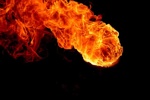Blog
Subscribe
Join over 5,000 people who receive the Anecdotally newsletter—and receive our free ebook Character Trumps Credentials.
Categories
- Anecdotes
- Business storytelling
- Collaboration
- Communication
- Corporate Storytelling
- Culture
- Decision-making
- Employee Engagement
- Events
- Fun
- Insight
- Leadership Posts
- News
- Podcast
- Selling
- Strategy
Archives
- October 2024
- September 2024
- August 2024
- July 2024
- June 2024
- May 2024
- April 2024
- March 2024
- December 2023
- November 2023
Years
Don’t second guess me
I am working on a project requiring a major organisational transformation. On Monday, the division’s chief heads off to Canberra to get a mandate to make the change from head office. One of his biggest concerns is head office continuously second-guessing him as he leads the organisation through the change process. He recognises that in complex situations there are no correct answers and there are likely to be many different opinions about what should be done, and head office has a habit of trying to micro-manage things.
Monday, the division’s chief heads off to Canberra to get a mandate to make the change from head office. One of his biggest concerns is head office continuously second-guessing him as he leads the organisation through the change process. He recognises that in complex situations there are no correct answers and there are likely to be many different opinions about what should be done, and head office has a habit of trying to micro-manage things.
I suggested using a story to demonstrate how head office second guessing might be fatal to the change process. This story from a BBC program ‘The Human Mind’ came to mind:
In October 2001, a fire crew was fighting a fire in a disused bingo hall in Leicester in the UK. Even though it was big, the fire chief decided it was safe enough to send the crew into the building. They were starting to make progress in knocking the fire down when the fire chief decided something was wrong, and ordered his team out of the building. The team protested, unwilling to give up the progress they had made. But the fire chief insisted and as they exited the building it exploded in a massive fireball. If the decision to evacuate hadn’t been made the entire team would have been killed. It turns out that the fire was one of the rarest and most dangerous phenomenon in firefighting – a backdraft. The fire chief had never experienced a backdraft before, he just knew that something was wrong and they needed to get out. In the ensuing investigation it turns out there were three things that were unusual: the smoke was more orange than usual, air was rushing into the building rather than out of it, and the fire was unusually quiet. The fire chief was right in his decision, he just didn’t know why at the time.
Relating the story to being second-guessed by head office might go like this. “Imagine if head office were there at that fire. There was no evidence that anything unusual was happening, the team were arguing against the chief (they wanted to stay and fight the fire) and they were making good progress. Chances are that head office would have overruled the fire chief and told him to keep fighting the fire, and the entire team would have been killed. And the head office decision would have been perfectly rational and the whole thing written off as a tragic accident.”
 About Mark Schenk
About Mark Schenk
Mark works globally with senior leadership teams to improve their ability to communicate clearly and memorably. He has been a Director of Anecdote since 2004 and helped the company grow into one of the world’s leading business storytelling consultancies. Connect with Mark on:
Comments
Comments are closed.
Not to add too much cynicism, but in the head office involvement scenario, the fire chief would have been fired afterward…
Hi Mark. There is a very similar story related in Gary Klien’s The Power of Intuition on page 32. In this example, called sixth sense, a fire lieutenant withdraws his men from a kitchen fire just before the floor collapses – again something was wrong but he could not articulate what. As you say, so often we are overridden when using our gut feeling (really experience)that is difficult to articulate. There is something about this in Myers-Briggs in the difference between the way an “n” and an “s” think. Do you remember all that. Maybe most senior executives are S?
Cheers and thanks for the great website. Chris